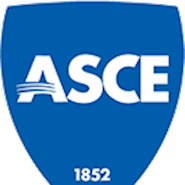ASCE has honored Masanori Hamada, Ph.D., NAE, and Peter W. McDonough, P.E., F.ASCE, with the 2025 Charles Martin Duke Lifeline Earthquake Engineering Award. Hamada was chosen for international leadership in the modeling, design, and construction of lifelines and lifeline systems as well as the characterization of earthquake-induced ground deformation and the construction of lifelines to resist the effects of liquefaction, landslides, and fault displacements. McDonough was selected for his internationally renowned leadership in the seismic performance of natural gas and liquid fuel systems.
Hamada is a world-renowned expert in earthquake and geotechnical engineering, specializing in studying the effects of soil liquefaction on lifeline systems, underground facilities, and aboveground structures. Since 1986, he has played a crucial role in collecting and utilizing large spatio-temporal datasets, such as aerial images before and after an earthquake, to assess liquefaction-induced ground movements. His work has emphasized the importance of ground strain in evaluating the performance of submerged tunnels and underground tanks. Additionally, he has demonstrated the engineering significance of liquefaction in reclaimed areas, where seawalls can shift significantly toward the ocean, causing lateral movement in the ground of the reclaimed land. Using such datasets, Hamada has identified the vulnerability of the ground in the northern Tokyo Bay area, such as Urayasu City in Chiba Prefecture, which suffered liquefaction damage during the 2011 Great East Japan Earthquake, and has highlighted the possibility of future liquefaction. Such data-driven engineering is now common in earthquake engineering, but he was the first academic and was ahead of his time in introducing this concept.
Hamada is a world-leading figure in researching the impact of earthquake-induced ground movements on infrastructure systems. He is also a leader in promoting socio-technical solutions to establish community safety on a global scale.
McDonough has profoundly impacted lifeline engineering and public safety worldwide, making significant contributions to the practice of reducing risks to lifeline systems and preparing communities for natural and man-made hazards.
With over 53 years of experience involving lifeline earthquake engineering and infrastructure, McDonough is an internationally renowned leader on natural gas and liquid fuel systems with numerous technical and policy contributions. For decades he has been a tireless leader and advocate for lifeline earthquake engineering. He has been committed to sharing his expertise through mentoring, organizing ASCE conferences, authoring ASCE publications, and successfully influencing policy by convincing the Western States Seismic Policy Council to implement safety policies on natural gas shut-off valves, and introducing the importance of the requirements of seismic vulnerability assessments of natural gas systems for the State of Oregon Public Utilities Commission.
Among McDonogh’s numerous notable accomplishments are design, analyses, and implementation of projects on hundreds of miles of high-pressure natural gas pipelines for the private industry. He is an expert in fault, river, and highway crossings, and has performed seismic-related work at Questar, BC Gas, Memphis Light Gas and Water Division, Pacific Gas and Electric, and Dominion Energy. He has contributed his expertise to foreign and domestic governments including the Republic of Korea and FEMA, nonprofits, and many local water and sewage districts such as the Jordan Valley Water Conservancy District, Central Utah Water Conservancy District, and Snyderville Basin Water Reclamation District.
The Charles Martin Duke Lifeline Earthquake Engineering Award is presented to an individual who has made a definite contribution to the advancement of lifeline earthquake engineering.



